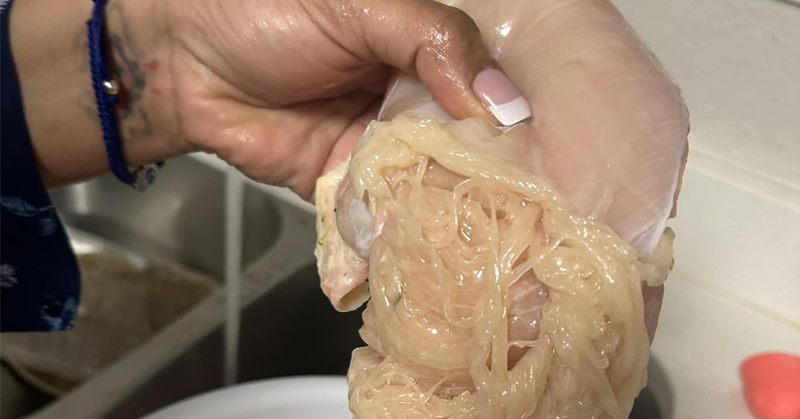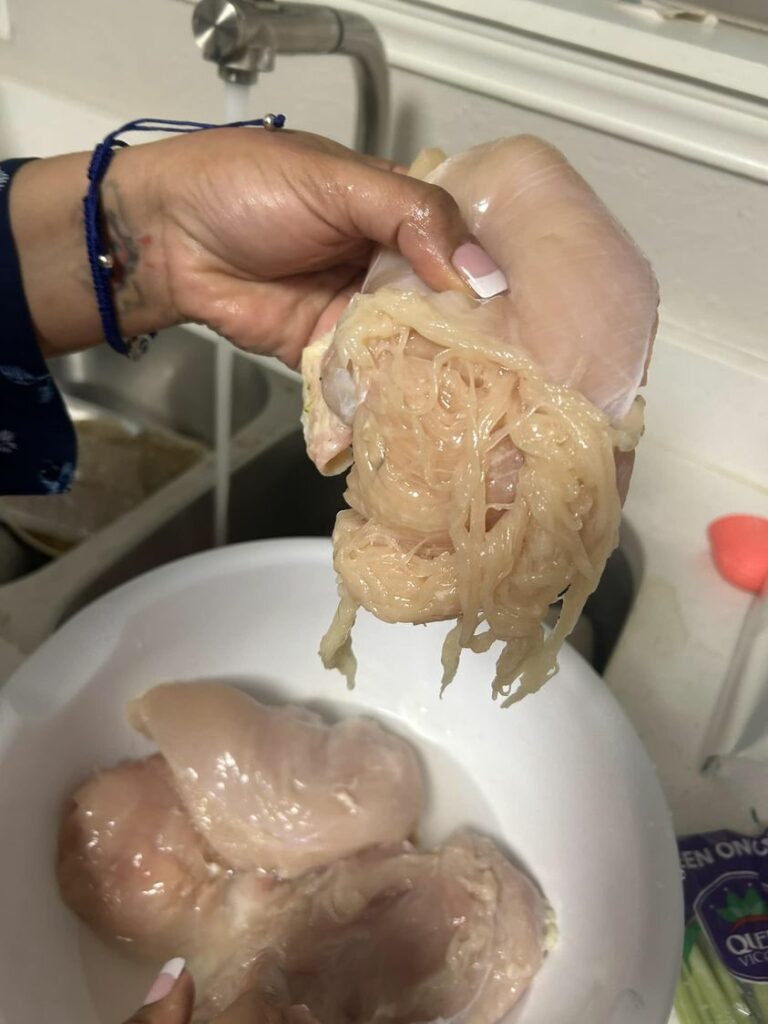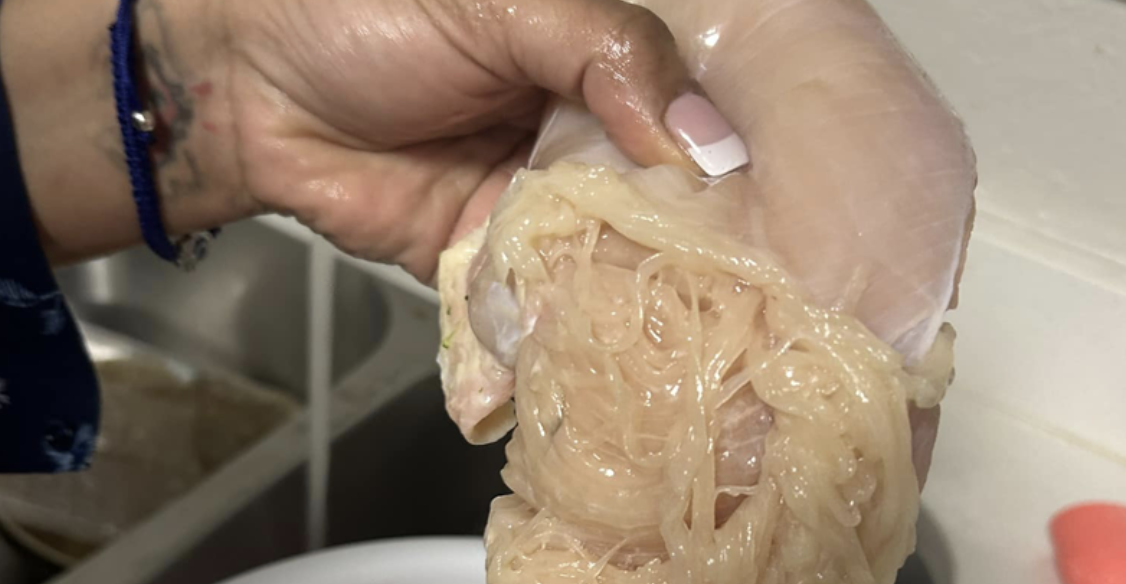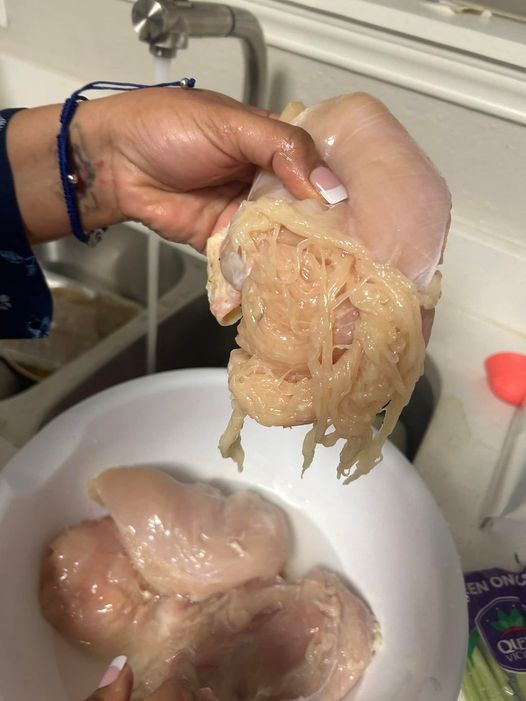
Have you ever heard of chicken that turns into spaghetti? Well, one mother was left in shock when the poultry she was preparing for dinner separated into stringy pieces of spaghetti. It sounds bizarre, but it’s true! In a now-viral Facebook post, Alesia Cooper from Irving, Texas, shared a photo of the raw chicken breast melting away into strands resembling spaghetti. You might be wondering – what caused this strange phenomenon?
Cooper had purchased the chicken breast from the budget supermarket Aldi, and she initially suspected that it was fake meat. However, the truth behind the “spaghetti meat” is quite different. According to experts, this unusual texture is a result of breeding practices to make chickens grow faster and have bigger breasts. The goal here is to maximize profits by producing more meat per bird. However, this breeding has unintended consequences.

The Wall Street Journal reports that along with the chewy “woody breast,” the “spaghetti meat” is a common side effect of this rapid growth. While it might sound unsettling, experts say that eating this meat won’t harm you. But the chickens themselves suffer as their bodies grow too big for their little legs to support. It’s a sad reality caused by our increasing demand for white meat over the years.
It’s surprising to see how fast chickens have grown in the last century. Back in 1925, it took 112 days for chickens to reach a market weight of 2.5 pounds. Today, broiler chickens go to market at 47 days old, weighing around 6.54 pounds. These changes are driven by consumer demand for cheap chicken products, like nuggets and sandwiches, which rely heavily on breast meat.

While some fast food chains and grocery stores support the demand for larger breast meat, there is a growing movement advocating for meat from slow-growth chickens. These companies argue that giving chickens more time to grow before slaughter leads to a healthier and happier life for the birds and produces better-tasting meat.
The Facebook post featuring the shredded chicken breast sparked a variety of reactions online. Some people expressed their disgust, questioning what they were being fed. Others shared similar experiences, noting that the quality of chicken seems to have declined in recent years. Many users suggested shopping at local butchers or co-ops for humanely raised and better-quality chicken. And some were even inspired to consider vegetarian or pescatarian diets as a result.
It’s unfortunate that factory farming practices have led to so much pain and suffering for these animals. As consumers, we have the power to make choices that promote ethical and sustainable practices in the food industry. By supporting local, organic, and humanely raised options, we can contribute to a healthier and more compassionate world.





